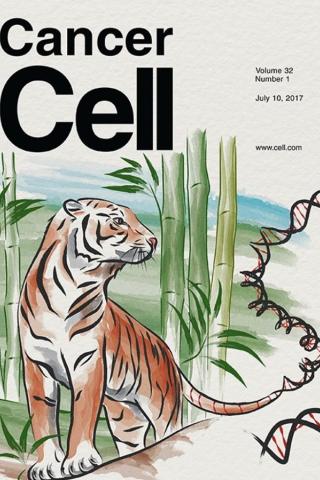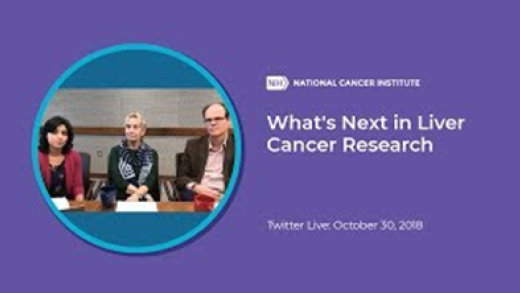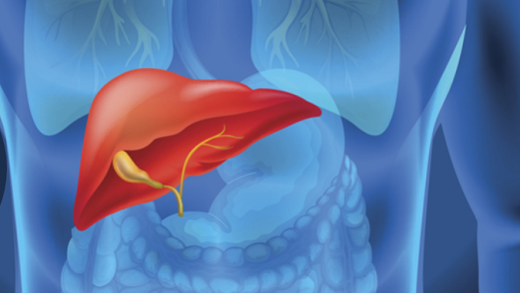
Anuradha S. Budhu, Ph.D.
- Center for Cancer Research
- National Cancer Institute
- Building 37, Room 5046B
- Bethesda, MD 20892
- 240-760-6837
- 240-541-4496
- budhua@mail.nih.gov
RESEARCH SUMMARY
Dr. Budhu's research focuses on genome-scale analyses of human liver cancer. Her work on gene, microRNA and metabolite profiling, has led to the identification of important signaling molecules that underlie liver cancer biology, with applications to the clinical management of liver cancer. Dr. Budhu helps to lead a basic/translational research program, emphasizing the discovery of diagnostic, prognostic and predictive biomarkers of liver cancer. These functional genomics investigations utilize bioinformatics and molecular biology, in concert with national/international epidemiological cohorts and clinical studies. Dr. Budhu received her Ph.D. at Cornell University. She is the Program Manager for the NCI CCR Liver Cancer Program and a Senior Associate Scientist in the Laboratory of Human Carcinogenesis.
Areas of Expertise
CCR Liver Cancer Program
A multidisciplinary research network dedicated to improving early detection, diagnosis, prognosis and treatment of liver cancer.

Anuradha S. Budhu, Ph.D.
Research
Dr. Budhu's research interests include studies of human liver cancer, specifically addressing the elucidation of molecular mechanisms involved in hepatocarcinogenesis, including metastasis. These avenues are explored through global molecular and genetic profiling as well as functional experimentation with an emphasis on clinical translation.
Publications
- Bibliography Link
- View Dr. Budhu's Full PubMed Summary.
Integrated metabolite and gene expression profiles identify lipid biomarkers associated with progression of hepatocellular carcinoma and patient outcomes
MicroRNA expression, survival, and response to interferon in liver cancer
Identification of metastasis-related microRNAs in hepatocellular carcinoma
Prediction of venous metastases, recurrence, and prognosis in hepatocellular carcinoma based on a unique immune response signature of the liver microenvironment
Biography

Anuradha S. Budhu, Ph.D.
Dr. Anuradha Budhu began her scientific career as a student researcher in the Undergraduate Biology Research Program (UBRP) at the University of Arizona, studying gene expression patterns in the larval brain of Drosophila Melanogaster. These studies were continued at The University of Adelaide in Australia through the UBRP Biomedical Research Abroad Vistas Open (Bravo!) Program funded by a Howard Hughes fellowship. After completion of her bachelor's honors degree in Biochemistry/Molecular and Cellular Biology from the University of Arizona, Dr. Budhu joined the graduate program in Biochemistry at Cornell University, where she earned her Ph.D. studying the roles of retinoids in mammary carcinoma. In 2002, she joined the Laboratory of Human Carcinogenesis at NCI as a Cancer Research Training Award (CRTA) postdoctoral fellow in the Liver Carcinogenesis Section. She was promoted to Staff Scientist in 2007 and Associate Scientist in 2018. Dr. Budhu has authored over 60 peer-reviewed articles and 6 book chapters. Dr. Budhu is an active member of the Staff Scientist and Staff Clinician (SSSC) community at CCR, having served as Co-Chair of the SSSC Communications Committee and Editor-in-Chief and Founder of the SSSC newsletter (The Dossier). She is the recipient of several awards, including the CCR's Outstanding Postdoctoral Award, the NCI Director's Innovation Award, the NCI SSSC Outstanding Mentor Award, the CCR SSSC Leadership Merit Award and the NCI Director's Award. Dr. Budhu is currently a Senior Associate Scientist and the Program Manager for the NCI CCR Liver Cancer Program.
Job Vacancies
We have no open positions in our group at this time, please check back later.
To see all available positions at CCR, take a look at our Careers page. You can also subscribe to receive CCR's latest job and training opportunities in your inbox.
News
Covers

Common Molecular Subtypes Among Asian Hepatocellular Carcinoma and Cholangiocarcinoma
About the Cover: The Thailand Initiative in Genomics and Expression Research for Liver Cancer (TIGER-LC) Consortium (depicted as a tiger) emerges from foliage, representing molecular, clinical, and epidemiological studies from teams in the United States, Thailand, and Japan, to generate a multilayered genomic and genetic liver cancer data ecosystem (represented by the tiger’s tail). Although common molecular subtypes (depicted as bamboo stalks) are observed among liver cancer types, there are differences observed between Asian and Caucasian populations (depicted by different bamboo colors). Cover art by Ethan Tyler.
Abstract
Intrahepatic cholangiocarcinoma (ICC) and hepatocellular carcinoma (HCC) are clinically disparate primary liver cancers with etiological and biological heterogeneity. We identified common molecular subtypes linked to similar prognosis among 199 Thai ICC and HCC patients through systems integration of genomics, transcriptomics, and metabolomics. While ICC and HCC share recurrently mutated genes, including TP53, ARID1A, and ARID2, mitotic checkpoint anomalies distinguish the C1 subtype with key drivers PLK1 and ECT2, whereas the C2 subtype is linked to obesity, T cell infiltration, and bile acid metabolism. These molecular subtypes are found in 582 Asian, but less so in 265 Caucasian patients. Thus, Asian ICC and HCC, while clinically treated as separate entities, share common molecular subtypes with similar actionable drivers to improve precision therapy.
Common Molecular Subtypes Among Asian Hepatocellular Carcinoma and Cholangiocarcinoma.
Chaisaingmongkol J, Budhu A, Dang H, Rabibhadana S, Pupacdi B, Kwon SM, Forgues M, Pomyen Y, Bhudhisawasdi V, Lertprasertsuke N, Chotirosniramit A, Pairojkul C, Auewarakul CU, Sricharunrat T, Phornphutkul K, Sangrajrang S, Cam M, He P, Hewitt SM, Ylaya K, Wu X, Andersen JB, Thorgeirsson SS, Waterfall JJ, Zhu YJ, Walling J, Stevenson HS, Edelman D, Meltzer PS, Loffredo CA, Hama N, Shibata T, Wiltrout RH, Harris CC, Mahidol C, Ruchirawat M, Wang XW; TIGER-LC Consortium. Cancer Cell. 2017 Jul 10;32(1):57-70.

